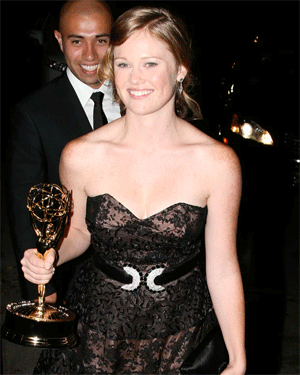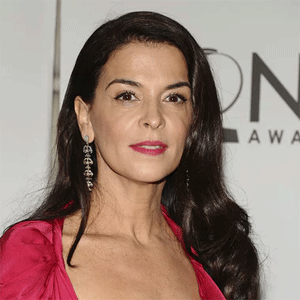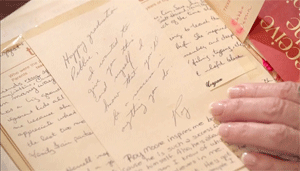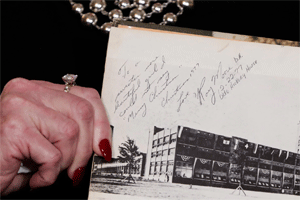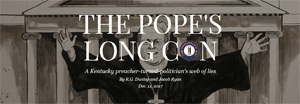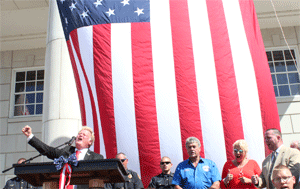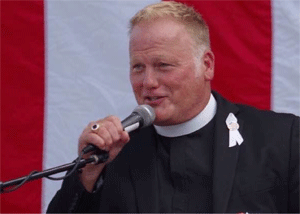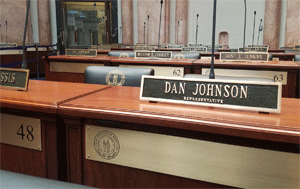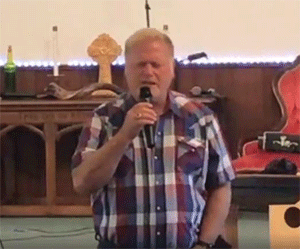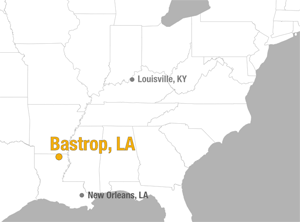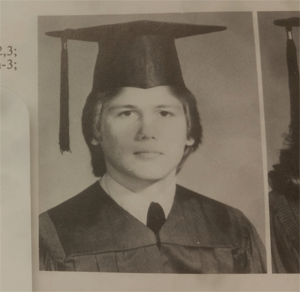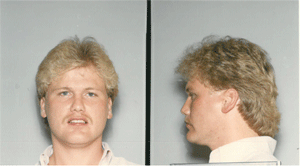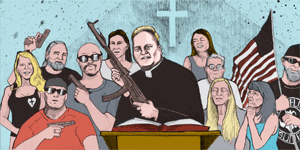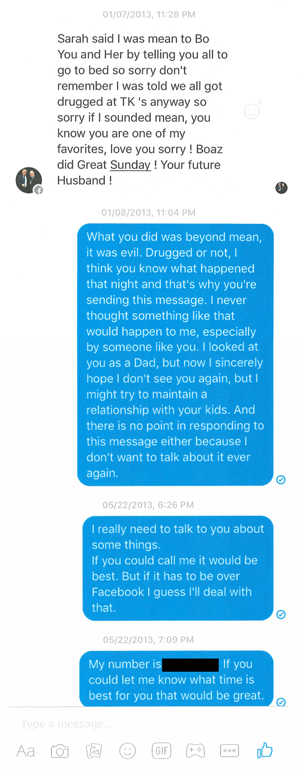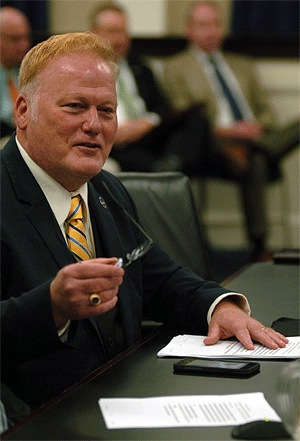Both women encountered the director early in their careers. Both describe remarkably similar experiences of his targeting and humiliation of young actresses.
by Krista Smith with Julie Miller
October 26, 2017 1:48 PM
NOTICE: THIS WORK MAY BE PROTECTED BY COPYRIGHT
YOU ARE REQUIRED TO READ THE COPYRIGHT NOTICE AT THIS LINK BEFORE YOU READ THE FOLLOWING WORK, THAT IS AVAILABLE SOLELY FOR PRIVATE STUDY, SCHOLARSHIP OR RESEARCH PURSUANT TO 17 U.S.C. SECTION 107 AND 108. IN THE EVENT THAT THE LIBRARY DETERMINES THAT UNLAWFUL COPYING OF THIS WORK HAS OCCURRED, THE LIBRARY HAS THE RIGHT TO BLOCK THE I.P. ADDRESS AT WHICH THE UNLAWFUL COPYING APPEARED TO HAVE OCCURRED. THANK YOU FOR RESPECTING THE RIGHTS OF COPYRIGHT OWNERS.

Photograph by Jeff Vespa.
A week after The New York Times and The New Yorker ran back-to-back reports cataloguing Harvey Weinstein’s alleged serial sexual harassment of women in Hollywood, actress Selma Blair saw a story on HuffPost about writer and director James Toback’s new film that made her blood run cold. The piece, written by a female reporter who interviewed Toback at the Venice Film Festival, was titled “James Toback Gets Us, He Truly Gets Us in ‘The Private Life of a Modern Woman.’”
Blair tweeted the story with a single word in response: “Ironic.”
In the days that followed, Blair, who has appeared in films such as Cruel Intentions, Legally Blonde, and Hellboy, learned about a group of women on social media who claimed to have been sexually harassed by the director (Two Girls and a Guy) and Oscar-nominated writer (Bugsy). Their accounts sounded eerily familiar. The group, which included Blair, worked with Los Angeles Times reporter Glenn Whipp on a story that broke on October 22, citing 38 women in total who alleged sexual harassment suffered at the hands of Toback. Since then, the number of accusers has risen to more than 200 women—including Blair and Oscar-nominated actress Rachel McAdams, who both spoke exclusively to Vanity Fair this week about their experiences with Toback. (Toback, 72, has written for Vanity Fair in the past. When reached by phone Wednesday evening, Toback said he had no comment on any of the allegations.)
Blair, 45, and McAdams, 38, tell remarkably similar stories about Toback’s modus operandi—the requests to meet him in hotel rooms, flattery about their acting skills, the promise of a role in the movie Harvard Man, which opened in 2001. The consistent themes in the stories of Blair, McAdams, and the hundreds of actresses who have come forward with their own tales of harassment hint at some of the reasons charges of sexual misconduct have plagued Hollywood since its inception. Actors and actresses, newcomers especially, essentially are always auditioning—any encounter, especially in a company town such as Los Angeles, could lead to a big break. The situation is compounded by the fact that many acting courses teach students to use, explore, and expose their vulnerabilities. So when a threatening individual manipulates a performer’s insecurities in a meeting purportedly related to an acting role, the experience can be confusing.
Explained McAdams, “I was 21 and in the middle of theater school when I met [Toback]. Theater school was a very safe space.” But Toback, she said, “used the same language during my audition—that you have to take risks and sometimes you’re going to be uncomfortable and sometimes it’s going to feel dangerous. And that’s a good thing—when there is danger in the air and you feel like you are out of your comfort zone.”
It is easy to see how a young actress at the start of her career might respond to a director’s lecherous behavior as an acting exercise or “test.” In an opinion piece in The New York Times that detailed an incident with Harvey Weinstein, Oscar-winning actress Lupita Nyong’o noted that “body work” is part of the coursework at fine-arts programs at schools such as Yale. Perhaps Weinstein knew this when he reportedly asked to massage and be massaged by women. Perhaps Toback knew this when he allegedly asked young women, after rattling off his film credits and famous friends, to trust him and disrobe so that he could help them become better actresses.
When reports of Toback’s alleged harassment began pouring in, both Blair and McAdams were motivated to speak out. Blair, who cooperated with the initial Los Angeles Times story on the condition her name not be used, said Toback threatened her life after their encounter, which she said took place in 1999. And in the nearly 20 years that followed, the actress only told two people about her experience.
“I still felt so powerless and scared,” Blair said, describing her emotional state earlier this week. “I kept thinking, ‘O.K., is there a big actress who is going to come out so that she can be the face of this? I want to bring as much awareness to this harassment as possible because I want Toback to be held accountable.”
Toback denied the allegations to the Los Angeles Times, claiming that he had never met any of the then-38 accusers or, if he did, the meetings were very brief. He also claimed that for the last 22 years it had been “biologically impossible” for him to do what he was accused of, citing diabetes and a heart condition.
“When he called these women liars, and said he didn’t recall meeting them and that the behavior alleged could not be attributed to him, I just felt rage and an obligation to speak publicly now,” Blair said.
“I did not want to talk about this ever again,” McAdams said. “However, even though it is a really bad memory, I feel like some good could come from talking about it now.”
What follow are edited excerpts from the actresses’ conversations with Vanity Fair.
Selma Blair’s representatives arranged for her to meet Toback and described him as a “really interesting and odd guy,” who could help her gain credibility with the indie-film crowd. (She had filmed Cruel Intentions, but it had not yet been released.) Blair’s team said Toback would only meet in his hotel room; Blair insisted that they meet in the hotel restaurant. The two were meant to discuss a project Toback had written called Harvard Man, so the actress dressed accordingly—a pleated Y.S.L. skirt, a grosgrain ribbon, and a cable-knit sweater.
That afternoon, I arrived at the restaurant and sat down at a table. After a bit, the hostess came up to me and told me that James Toback could not make it down, but that he wanted me to meet him in his room. Against my better judgment, I went upstairs.
I was rattled, and looking back, I don’t think James Toback ever planned to come down to the restaurant.
I went in the room feeling a little off balance about the arrangement, but he seemed nonplussed. He pulled out the script and said, “I look at you, and I see that we have a real connection. You could be an incredible actress, just by your eyes. But I can tell you don’t have confidence.”
He said, “Where are your parents?”
I was thinking, “Why is he trying to make me feel so uncomfortable?” But I realize now he was really trying to figure out what support system I had. I answered him. My mother was in Michigan, and I had an estranged relationship with my father.
James said, “You know, I could have him killed.”
He sat back in his chair and said really confidently, “I do it all the time. I know people.”
Now I’m even more nervous, because he’s told me I have no confidence, he said he could have someone killed, and he said we had a connection—which no one had said to me before in this business. I really believed that when he started to talk . . . that he was going to be my mentor. That is how he got into my brain. You know, in acting classes they get into your personal history and connect that to work. So this conversation didn’t seem that strange. It seemed like he was concerned that I would not be seen as the actress I had the potential to be, and that he could do for me what he did for Robert Downey Jr.
It was about 40 minutes in and he said, “Will you trust me? I cannot continue to work with you unless you trust me.” He said, “I need you to take your clothes off. I need you to do this monologue naked.”
I said, “Why would my character need to be naked? She is a lawyer in a courtroom.”
He said, “Because I need to see how your body moves. How comfortable you are with your body. This is where I start training you.”
I told him I was uncomfortable. But he continued to coax me—saying that this was in no way a come-on. This was part of training. He wanted to make me a good actress. He wanted to make me comfortable. I thought, “Well, my representation sent me to see him. He must be really important.” I took off my sweater. I was so private about my body. I do remember looking down at the script and seeing my bare chest and not being able to focus on anything but the words and my face being so hot and puffy and feeling so ashamed.
He commented on my body—said that it was Eastern European. I was just trying to block it all out.
He said, “Wow, you need a lot of work.”
I put my sweater back on. And he proceeded to tell me how much help I needed . . . that I was really just a mess. As I was telling him, “Guess I better get out of here . . .” he sat down on the bed and said, “No, you have to talk to me.” He started to rub his penis through his pants and asked, ‘Would you f**k me?’”
I managed to say, “No. No, I won’t. Are you married? Do you have a wife?”
He said, “It’s complicated, but yes. She’s wonderful. She’s a writer. She’s a teacher. And she’s a wonderful woman. And I have a girlfriend who can’t get enough sex. But I love that. I have to come six or seven times a day or else it really doesn’t work for me to get through my day.”
I felt trapped. I did not know how to get out and save face and not make a scene. Was I imagining it? He dropped some names [of actresses] that he did some really dark sexual things with. These felt like lies and dark gossip and that he would add my name to the list. I went to leave and he got up and blocked the door. He said, “You have to do this for me. You cannot leave until I have release.”
I said, “What do I have to do? I cannot touch you. I cannot have sex with you.”
“He said, ‘It’s O.K. I can come in my pants. I have to rub up against your leg. You have to pinch my nipples. And you have to look into my eyes.’” I thought, “Well, if I can get out of here without being raped . . .”
He walked me back to the bed. He sat me down. He got on his knees. And he continued to press so hard against my leg. He was greasy and I had to look into those big brown eyes. I tried to look away, but he would hold my face. So I was forced to look into his eyes. And I felt disgust and shame, and like nobody would ever think of me as being clean again after being this close to the devil. His energy was so sinister.
After he finished, he told me, “There is a girl who went against me. She was going to talk about something I did. I am going to tell you, and this is a promise, if she ever tells anybody, no matter how much time she thinks went by, I have people who will pull up in a car, kidnap her, and throw her in the Hudson River with cement blocks on her feet. You understand what I’m talking about, right?”
He looked at me with those bug eyes that had just raped my leg. And I said, “Yes. I understand.”
I left. I was shaking and scared. I told my boyfriend and made him promise not to tell anyone. My career was just starting, and I was frightened. I thought I was going to be kidnapped if I told anybody.
When my manager called me back and said, “James Toback wants to see you again,” I said, “That man is vile. And I never want to be in a room with him again. Do not send any girls or women to him.”
I didn’t want to speak up because, it sounds crazy but, even until now, I have been scared for my life. But then these brave women spoke out, and he called them liars and said he didn’t recall meeting them . . . that [the] behavior alleged was disgusting and it could not be attributed to him. I just felt rage. Pure rage.
Also, where are the people who have been financing his movies? His high-profile friends? This man, unlike Harvey Weinstein, does not have a company that can hold him accountable. Who is coming out and saying, “This is a horrible story and we are looking into this.” Or, “I knew something.” Where was our union?
I would like to see Toback admit this happened. None of us are asking for money, for jobs, or for fame. We don’t want to be threatened on social media or called whistleblowers by people who don’t know what it means to be defiled and degraded and made to feel worthless. What I do want, in my dreams, is for someone bigger than me to call him out. I want to light the pyre of public opinion.”

Photograph by Jason McDonald.
Rachel McAdams was a 21-year-old theater student in Toronto when she was invited to audition for Toback for a role in Harvard Man.
This was a big audition. I was pretty fresh and new to all of this. So we did the audition and he said, “I think you’re really, really talented. I think you’re quite good for this actually, but I’d like to workshop it a little with you, and maybe rehearse a bit more and see if we can get you all the way there. Leave your phone number with the casting agent’s assistant, and we’ll get together and workshop this a bit.”
So I did. And he called me that night saying, “Would you come to my hotel so we can work on this and talk about it?” I actually had my first TV job the next day and had to get up at five in the morning. So I said, “Is there any other time that we can get together?” I didn’t really want to go to a hotel and meet him. He said, “It has to be tonight. I am going out of town first thing tomorrow. This is our only chance.” I really didn’t want to go. I was so nervous about this show that I was starting because I hadn’t done TV before. I wanted to focus on that, but he was so insistent. So I went over to the hotel, went to the room, and he had all of these books and magazines splayed out on the floor. He invited me to sit on the floor which was a bit awkward. Pretty quickly the conversation turned quite sexual and he said, “You know, I just have to tell you. I have masturbated countless times today thinking about you since we met at your audition.”
He started that kind of manipulative talk of, “How brave are you? How far you are willing to go as an actress? I want to build some intimacy between us because we have to have a very trusting relationship and this is a very difficult part.” Then he asked me to read passages out loud from different reviews of his films and different critics talking about his work. It was all so confusing. I kept thinking, “When are we getting to the rehearsal part?” Then he went to the bathroom and left me with some literature to read about him. When he came back he said, “I just jerked off in the bathroom thinking about you. Will you show me your pubic hair?” I said no.
Eventually, I just excused myself. I can’t remember how long I was there. I felt like I was there forever. This has been such a source of shame for me—that I didn’t have the wherewithal to get up and leave. I kept thinking, “This is going to become normal any minute now. This is going to all make sense. This is all above board somehow.” Eventually I just realized that it wasn’t.
I was very lucky that I left and he didn’t actually physically assault me in any way.
I had never experienced anything like that in my life. I was so naïve. I think I just didn’t want to believe that it could turn worse. But yes, there was this sinking feeling inside of me. Like, “Oh my god, I am in this hotel room alone with this person.” I just kept trying to normalize it—thinking, “This has to be some weird acting exercise. This is some kind of test. I just have to show that I am brave and this does not bother me and nothing can shake me.” I really was frozen. My brain was not catching up.
When I went home, I just couldn’t sleep. It was the worst way to start a new job. I got up very early in the morning and called my agent at the time. And she was outraged. She was very sorry. But she also said, “I can’t believe he did it again. This isn’t the first time that this has happened. He did this the last time that he was in town. He did this to one of my other actresses.” That is when I got mad, because I felt like I was kind of thrown into the lion’s den and given no warning that he was a predator. This was something that he was known for doing already. I was so surprised to hear that.
Sexual harassment is so pervasive, many women seem to have their own story. I just think there is an “anything goes” [attitude] in Hollywood that gets taken too far. And there is a sense that you don’t have to be responsible for your actions—there is just no limit to what you can be subjected to.
This has all got to stop. We need to start acknowledging what an epidemic this is, and what a deep-seated problem this is. You have to get it all out in the open and in the light so that we can really understand how pervasive this is. I think we almost have to exhaust ourselves sharing our experiences before the rebuilding can begin. And hopefully we never slip back into this darkness again.



